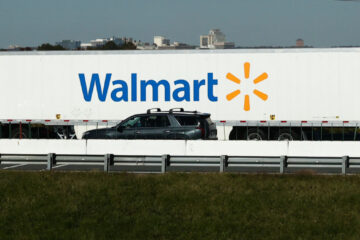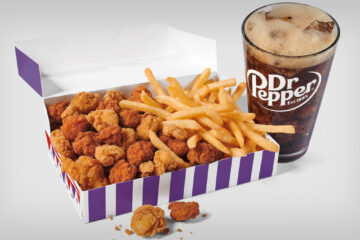The Covid pandemic caused higher prices due to supply chain problems and inflation. Demand for certain goods increased while labor prices were pushed higher due to the challenges of operating factories, farms, and shipping operations under Covid protocols.
Retailers in 2020 and 2021 faced real challenges in getting goods into their stores. Inflation was real and even as the impact of the pandemic faded, some problems remained.
Wages have generally been pushed higher in the service industry. The $15 minimum wage, while not a law in most places, has become significantly more common.
Related: Popular closed retailer brought back from the dead
But, with covid mostly an unpleasant memory, supply chain issues have become less of a concern, and inflation has receded. Retailers, however, have not been all that willing to talk about that, and, in many cases, in-store prices remain inflated even though costs to the company have gone down.
Former Costco CFO Richard Galanti has been very open about inflation and during his company’s second-quarter earnings call, he essentially said that it had gone away.
“A couple of comments about inflation. In the last quarter, in the first quarter, we estimated that year-over-year inflation was approximately 0 to 1%. We’ll now say that in Q2, it was essentially flat. And notwithstanding essentially flat, we’re taking price reductions where we can,” he shared.
While that may not be true for smaller chains that lack Costco’s (COST) buying power, it’s almost certainly true of Walmart. That chain, however, has not followed the warehouse club’s pricing lead and has continued to charge higher prices, according to Bill Clinton’s former Labor Secretary.
Walmart has a reputation of offering low prices.
Image source: Joe Raedle/Getty Images
Is Walmart price gouging?
Consumers have an imperfect view of inflation.
“Americans believe that grocery retailers are earning a 35.2% net profit margin, 14 times higher than grocers’ actual net profit margin average of 2.5%, and that food-at-home inflation is 24.3%, double the annual rate reported by the U.S. Bureau of Labor Statistics,” Dunnhumby’s Consumer Trends Tracker reported in February 2023.
It’s a problem of perception especially now that the actual impact of inflation on what the retailers are paying has mostly gone away. The perception that inflation remains high — an idea that has become highly politicized — has helped some retailers maintain higher profit margins than they traditionally do.
Former Labor Secretary Robert Reich believes that Walmart has been taking advantage of the situation and public perception of inflation.
“When I say price gouging is driving inflation, this is what I mean,” he said on X (the former Twitter).
Walmart hiked prices on its Great Value food brands.
The result? Its net income spiked 93% to $10.5 billion towards the end of 2023.
Walmart rewarded shareholders with $5.9 billion in buybacks and dividends.
When I say price gouging is driving inflation, this is what I mean.
— Robert Reich (@RBReich) March 23, 2024
Reich’s comments touched off a wave of social media posts where people showed how prices have increased on certain Walmart items.
President Biden makes the same claim
President Joe Biden spoke about inflation during a recent campaign event.
“Inflation is coming down. It’s now lower in America than any other major economy in the world. The cost of eggs, milk, chicken, gas, and so many other essential items have come down. But for all we’ve done to bring prices down, there are still too many corporations in America ripping people off: price gouging, junk fees, greedflation, shrinkflation,” he said.
The Federal Trade Commission (FTC) also released a report on March 22 “accusing big grocery players of using pandemic-era supply chain disruptions ‘as an opportunity to further raise prices and increase their profits, which remain elevated today,'” Supermarket News reported.
Walmart was not the only target of the FTC investigation. Walmart, Amazon, and Kroger were also named on the retailer side while manufacturers including Procter & Gamble, Tyson Foods, and Kraft Heinz were also cited.
Walmart CFO John David Rainey refuted claims of price gouging (although he was not addressing them directly) during his comments in the company’s fourth-quarter earnings call.
“Overall, we expect some level of improvement in gross profit, but I want to decompose that further because there’s two elements to that. One is our product margin, which we are not relying on raising prices to achieve our long-range plan,” he shared.


